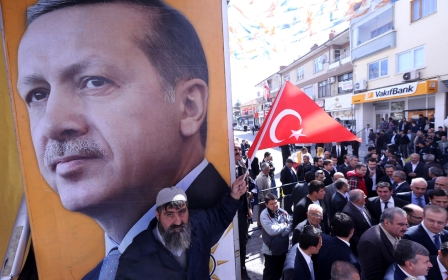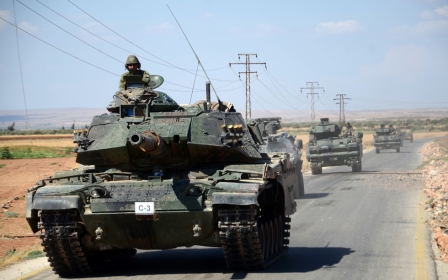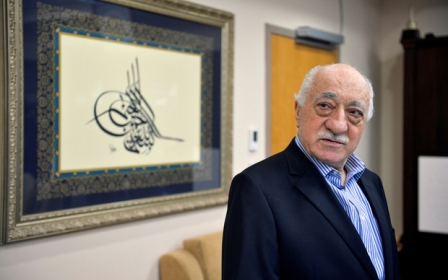Turkish province bans protests against new gold mine

A Turkish province on Monday banned public demonstrations "as a precaution" while a court prepared to consider an application for a new gold mine which opponents say will damage the environment.
The Artvin governor’s office said it had banned rallies and protests in the Black Sea province for a month in the wake of the announcement.
According to the Dogan news agency, the ability to impose the ban was made possible because of the state of emergency declared by the Turkish government after the failed military coup on 15 July.
“In order for the current peaceful situation to continue and prevent harm against public peace, all rallies, press releases, meetings, sit-in protests, distributing notices and similar activities were banned due to violent activities that can emerge before, during or after them,” the statement by the office read.
Tensions have been high over attempts by the Cengiz Holding business conglomerate to begin mining in the Cerattepe region of Artvin, with repeated protests by locals and environmental activists.
Monday's hearing was set to be the last in a case filed against an environmental impact assessment (EIA) report by Turkey's environment ministry, which said that mining had been "approved and allowed" in Cerattepe.
The plan for the gold mine in the Artvin region had initially been blocked by the Turkish judiciary following ecological complaints.
A case filed by 751 individuals and 61 lawyers including members of the Green Artvin Association looked to overturn the ruling.
However, according to social media, a mass walk-out occured during the hearing after lawyers claimed the judge lacked impartiality:
According to a statement from the Building and Wood Workers International in May, Cerattepe is "home to more than 2,000 plant forms" as well as "diverse wildlife and important water resources, all of which are being threatened by the mining plans".
"But the struggle in Cerattepe is about more than saving the forests, water and jobs of people in the region," read the statement. "To save our forests is about saving the climate for all of us and our future generations to come."
Cengiz Holding is run by Mehmet Cengiz, who has close links to Turkey's ruling party, the AKP. According to Bloomberg, Cengiz sits with Turkish President Recep Tayyip Erdogan’s son on the board of a charity at a university named after Erdogan and is originally from Erdogan’s hometown.
Cengiz was also mentioned in the so-called Panama Papers leak of offshore tax-haven information. According to Cumhuriyet newspaper, Cengiz has six offshore companies managed by Seref Dogan Erbek, a man currently wanted by US authorities for financial manipulation and fraud.
After the story was reported by Cumhuriyet, Cengiz allegedly rang the paper and accused them of being "sons of bitches".
A local far-right group calling themselves the Patriotic Youth of Rize released a statement on Monday warning that they were "not going to allow" any disruption to be caused by environmental activists during the court hearing.
The group warned that "foreign forces which carry out all sorts of evil acts in order for our country to get into chaos and get separated have now used ‘Cerattepe’ as an excuse; and, they are trying to provoke the pure and naive people of Artvin in order to create a second Gezi Park atmosphere,"referring to the 2013 demonstrations against Erdogan's government which were initially sparked by environmental protesters in Istanbul.
The statement ominously added that "in case of furor[e] and attacks that these people could carry out, we are going to bring along with us our ‘support tools’ as a necessary precaution".
Environmental protests have been a focal-point for much of the opposition to the AKP government since it came to power in 2002.
The 2013 Gezi Park demonstrations, which eventually saw millions of Turkish citizens on the streets to oppose the government, began after police broke up a sit-in by activists attempting to protect one of the last green spaces in Istanbul.
Public outrage peaked again after more than 300 people died when a mine in the western town of Soma exploded.
New MEE newsletter: Jerusalem Dispatch
Sign up to get the latest insights and analysis on Israel-Palestine, alongside Turkey Unpacked and other MEE newsletters
Middle East Eye delivers independent and unrivalled coverage and analysis of the Middle East, North Africa and beyond. To learn more about republishing this content and the associated fees, please fill out this form. More about MEE can be found here.




